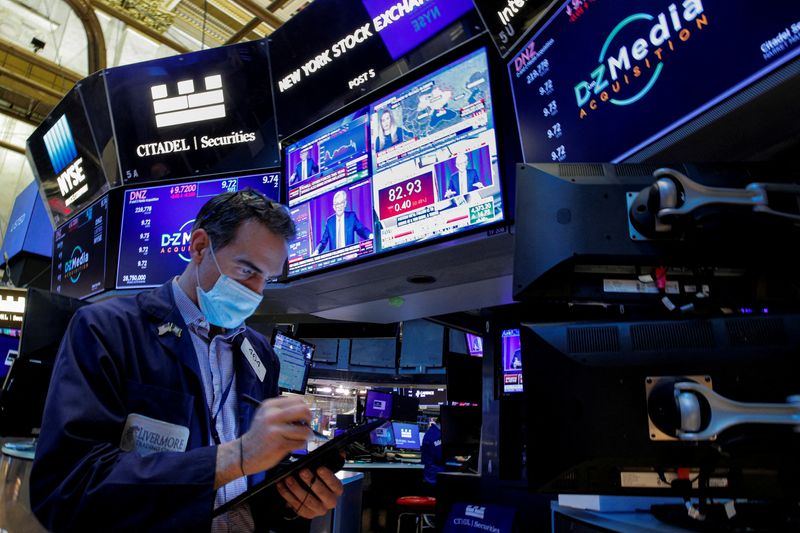Asahi shares mark weekly slide after cyberattack halts production
Investing.com-- The S&P 500 closed flat on Friday, but ended the week in the green as concerns about the impact of a government shutdown were largely brushed aside.
At 4:00 p.m. ET (20:00 GMT), the Dow Jones Industrial Average gained 238 points, or 0.5%, the S&P 500 index was flat, and the NASDAQ Composite closed 0.3% lower. All three major averages had hit record highs intraday.
Government shutdown could hit economy
Treasury Secretary Scott Bessent warned in a CNBC interview on Thursday that this shutdown could hurt the economy more than those in the past.
Shutdowns have historically had limited impact on financial markets and the economy. The last shutdown occurred during Trump’s first term, and lasted 35 days between late-2018 and early-2019. The Congressional Budget Office estimated an impact of $11 billion on the economy from the shutdown, which was also the longest in U.S. history.
A cooling U.S. labor market is a "bigger worry" for financial markets than an ongoing U.S. government shutdown, according to analysts at Capital Economics.
Writing in a note to clients, the analysts led by Jonas Goltermann suggested that, historically, a shutdown of the federal government is "unlikely to make much impact" on investors even if "it drags on for some time."
Instead, a softening in the labor picture points to "downside risks" for a range of asset classes, including equities, U.S. Treasury yields and the dollar, they argued.
ISM non-manufacturing PMI stalls
A major consequence of the shutdown was the likely delay of a monthly nonfarm payrolls report, which was initially scheduled later in the session.
The Federal Reserve has been keeping close tabs on labor market figures, with policymakers mulling over a potential series of rate reductions to help boost hiring and investment -- albeit at the risk of driving up inflationary pressures.
Thursday’s Challenger layoffs data showed some improvement, with layoffs falling in September, while ADP data showed a substantial decline in private payrolls in September.
The ISM’s non-manufacturing purchasing managers index fell to 50 in September, from 52.0 in August, as services sector activity stalled in September amid a sharp slowdown in new orders, while subdued employment added to mounting evidence of sluggish labor market conditions because of waning demand and supply of workers.
A reading above 50 indicates expansion. The services sector accounts for more than two-thirds of U.S. economic activity.
Applied Materials weakens, Palantir slips
In the corporate sector, chip gear maker Applied Materials (NASDAQ:AMAT) stock weakened after the company said it expects new U.S. export restrictions to reduce its revenue by approximately $110 million in the fourth quarter of its current fiscal year and $600 million in fiscal 2026.
Palantir Technologies Inc (NASDAQ:PLTR) fell after Rueters reported that an internal U.S. Army memo flagged major security flaws in battlefield communication network built by Palantir and others.
USA Rare Earth Inc (NASDAQ:USAR) rallied to a record high after CEO Barbara Humpton told CNBC in an interview that the company was in close talks with the Trump admininstration.
Entergy Corporation (NYSE:ETR), meanwhile, said it would provide power to support Google’s plans to build a $4 billion data center in Arkansas.
Peter Nurse, Ambar Warrick contributed to this article
